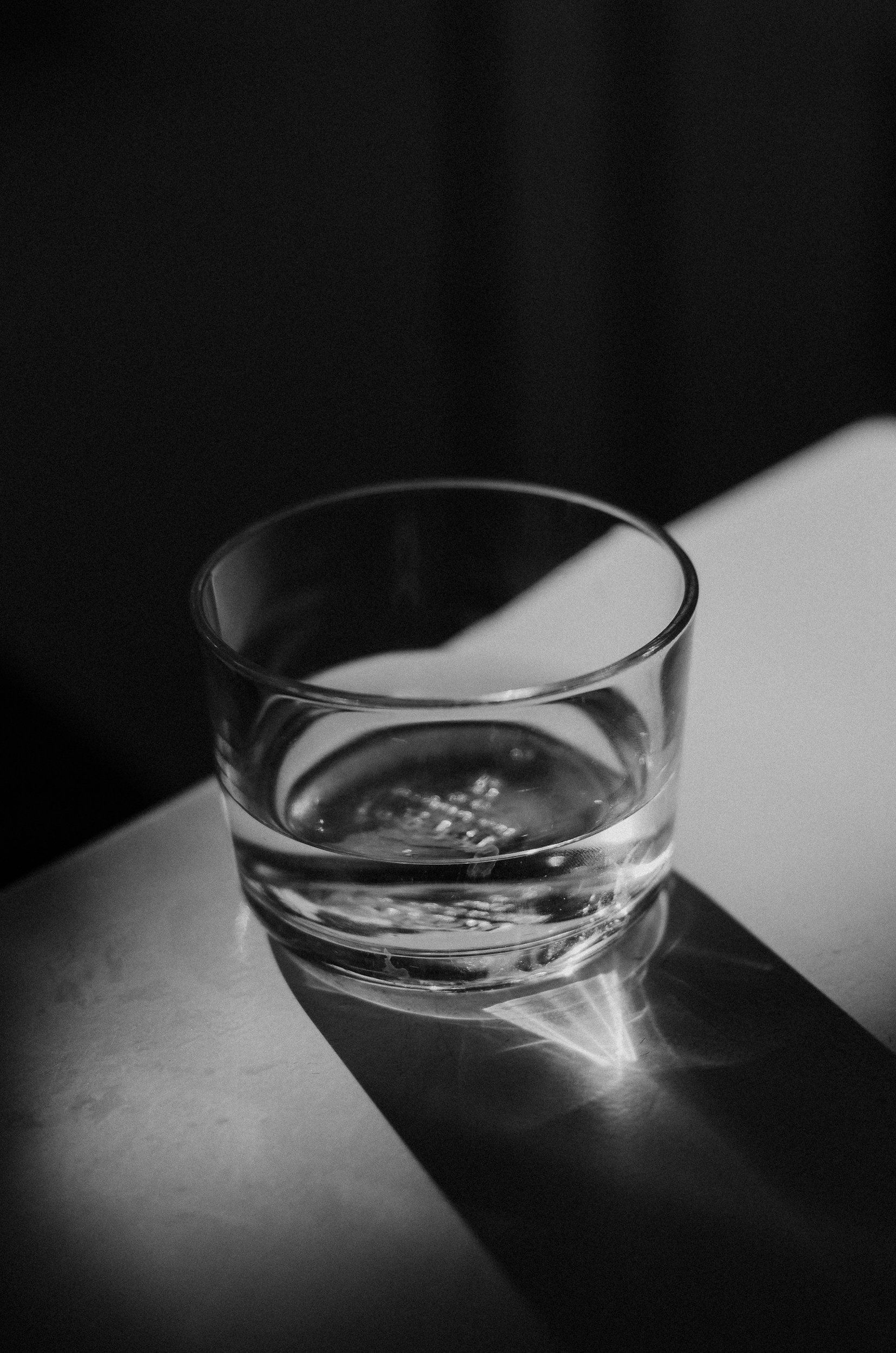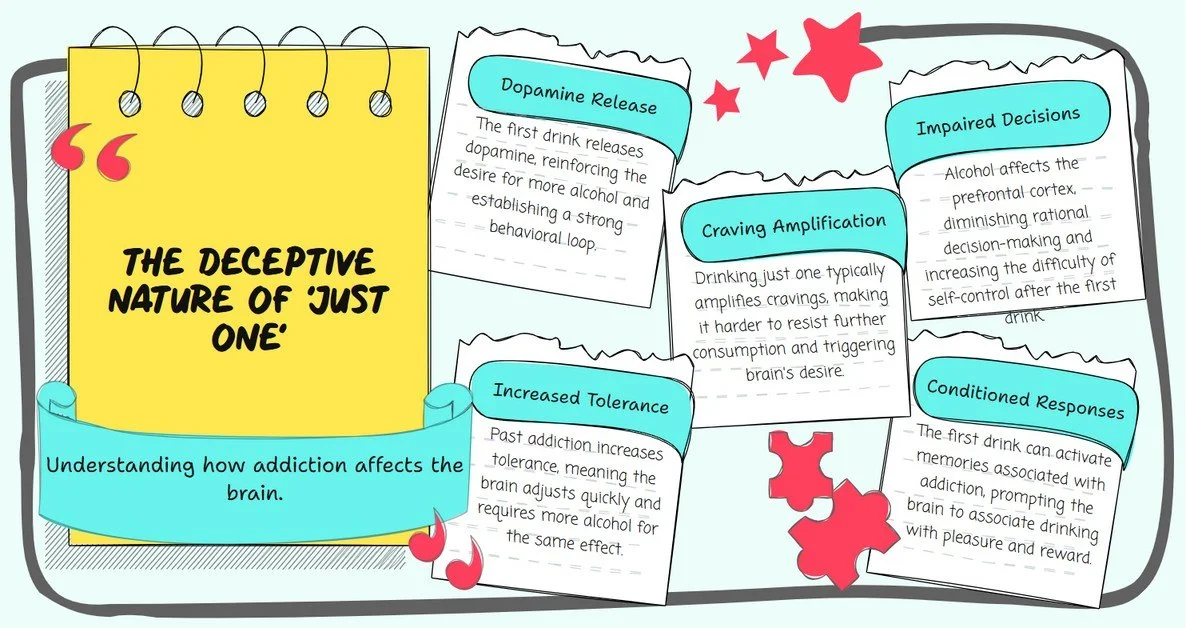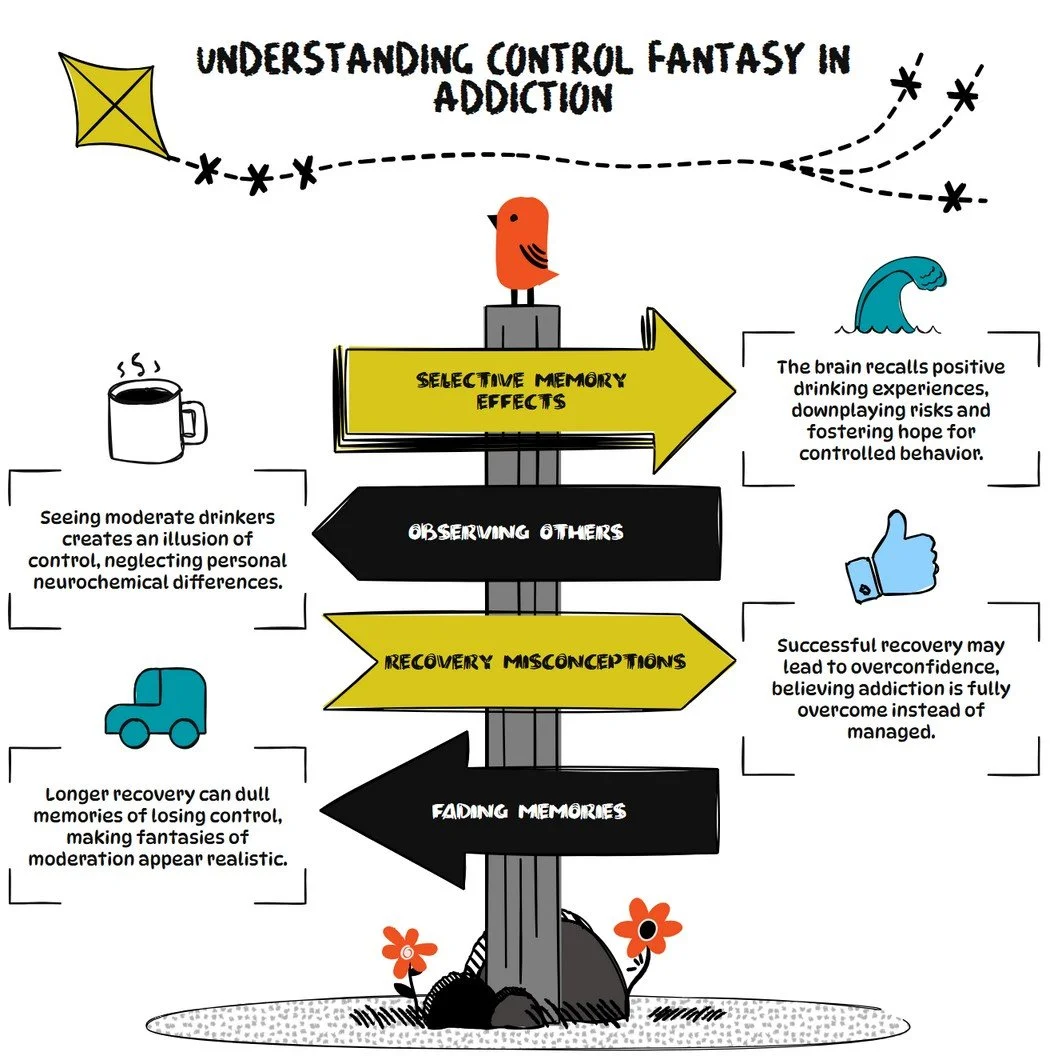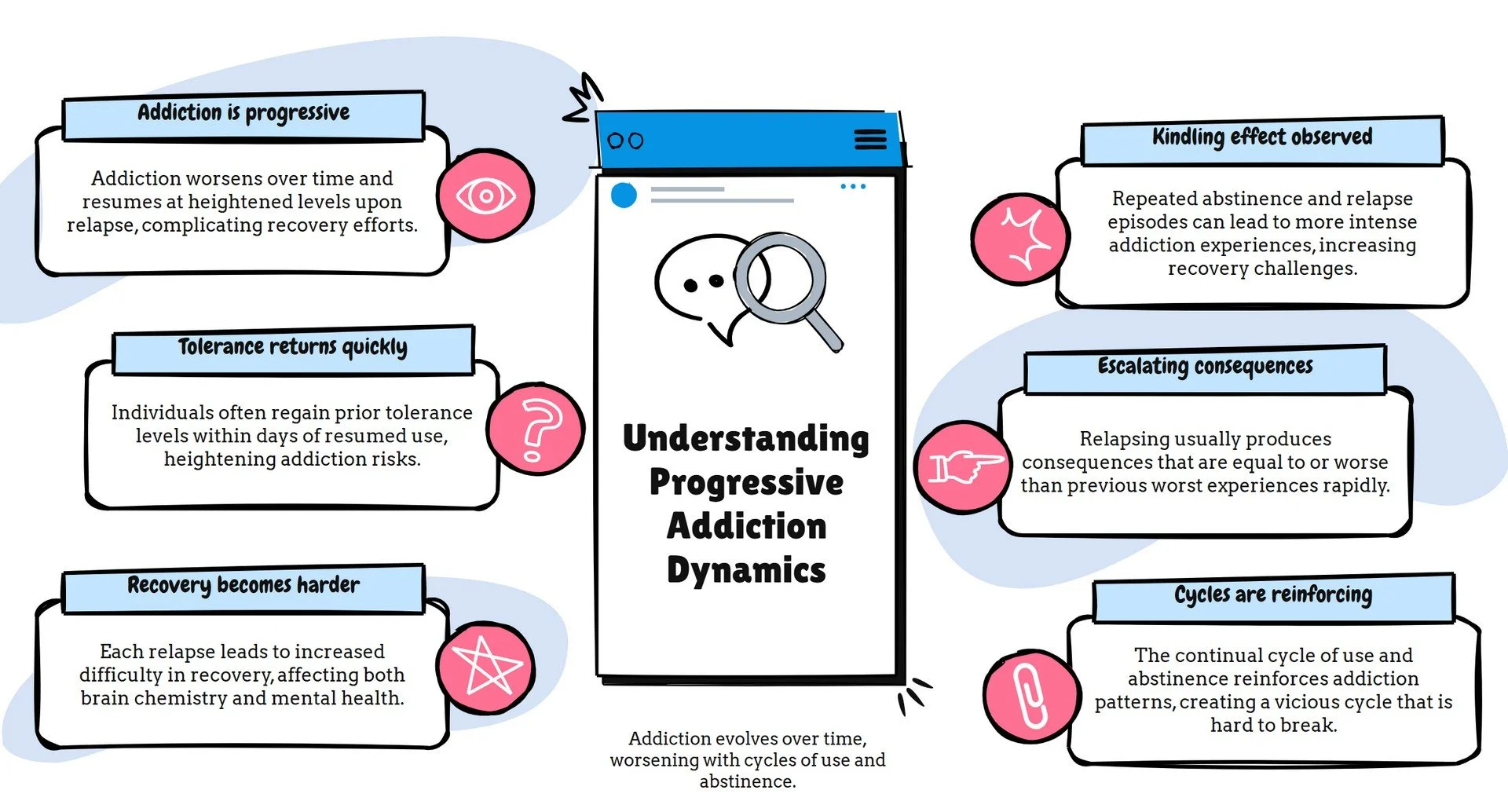
“It’s The First Drink That Gets You Drunk”
The AA saying "it's the first drink that gets you drunk" captures one of addiction's most crucial truths: that for people with substance use disorders, the real danger lies not in the tenth drink or the final drink, but in the very first one. This seemingly paradoxical statement reveals the progressive, unstoppable nature of addiction once the initial threshold is crossed.
This self-assessment is designed to help you examine your relationship with this fundamental recovery principle. It explores how deeply you understand the progressive nature of your addiction, identifies areas where you might still harbor illusions about control, and helps you develop stronger defenses against the deceptive thinking that positions "just one" as a viable option.
The assessment examines both your intellectual understanding of this concept and your emotional/experiential integration of it. Many people can understand this principle intellectually while still maintaining secret fantasies about controlled use. This assessment helps identify where these dangerous illusions might persist and how to strengthen your recovery foundation against them.
The Neurochemical Reality
When someone with addiction consumes the first drink, several neurochemical processes begin immediately:
Dopamine Activation: The first drink triggers dopamine release in the brain's reward center, creating the neurochemical foundation for continued consumption. This isn't a matter of willpower—it's brain chemistry.
Tolerance Resumption: The brain's tolerance mechanisms, developed during active addiction, reactivate quickly. What once required multiple drinks to achieve becomes the new baseline expectation.
Craving Intensification: Rather than satisfying cravings, the first drink typically intensifies them. The brain's addiction pathways, dormant during abstinence, reactivate and demand more.
Decision-Making Impairment: Alcohol's effects on the prefrontal cortex begin with the first drink, compromising the very capacity for rational decision-making needed to "stop at one."
Memory System Activation: The first drink can trigger powerful associative memories and conditioned responses developed during active addiction, creating overwhelming urges for continued use.
Why Control Fantasies Persist
Selective Memory: The brain tends to remember positive aspects of drinking while minimizing negative consequences, creating false confidence in the ability to control use.
Non-Addicted Brain Observation: Watching others drink moderately can create the illusion that this behavior is possible for everyone, ignoring fundamental neurochemical differences.
Recovery Confidence: Success in recovery can paradoxically create false confidence that addiction has been "overcome" rather than managed through abstinence.
Gradual Memory Fading: As time in recovery increases, the visceral memory of loss of control may fade, allowing controlled drinking fantasies to seem more plausible.
External Pressure: Social situations and cultural messages that normalize moderate drinking can create pressure to believe that controlled use should be possible.
The Progressive Nature Reality
Disease Progression: Addiction is a progressive disease that continues advancing even during periods of abstinence. Any return to use typically resumes at or beyond the level where it left off.
Kindling Effect: Repeated cycles of abstinence and return to use can actually make subsequent addiction episodes more severe and harder to overcome.
Tolerance Acceleration: Previous tolerance levels return quickly with renewed use, often within days or weeks rather than the months or years it originally took to develop.
Consequence Escalation: Return to drinking typically leads to consequences that equal or exceed previous worst periods, often more quickly than before.
Recovery Difficulty: Each relapse can make subsequent recovery more difficult, both neurochemically and psychologically.



